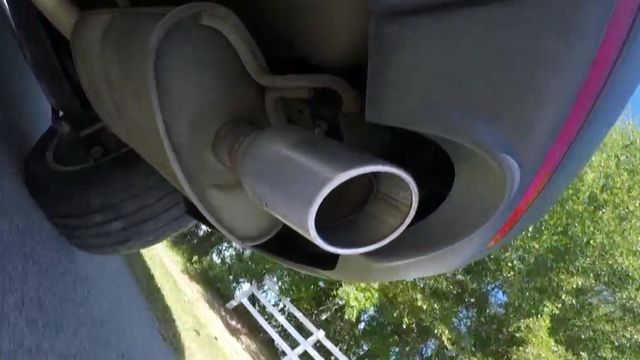Some Ford Explorer owners say their SUVs poisoned them
Months after Ford acknowledged carbon monoxide leaks in police versions of Explorer SUVs, federal regulators are now looking at the potential of similar problems in civilian vehicles.
Posted — UpdatedOne Triangle man says he might have such proof.
Steve Simmons said that, shortly after he bought a certified, pre-owned 2015 Ford Explorer in July, he began to feel sick.
"I was weak. I was dizzy. My vision was a little screwed up, and then nausea and constant headache," Simmons said.
By the second week, he said, he felt so bad that he drove himself to an emergency room. A blood test confirmed he had carbon monoxide poisoning.
He went home but was in a hospital the next day, hooked up to oxygen for a couple of hours.
"I said, 'I am bringing back your vehicle to you. It got me ill,'" he said.
Another local Explorer owner contacted 5 On Your Side, worried about the safety of the SUV she bought new in 2015.
Because of a pending settlement with Ford, she doesn't want to be identified, but she said she made repeated trips to a dealership because of the smell inside the vehicle and repeated trips to the doctor with sick children.
She said in an email that she is "afraid of the car."
"We ride with our windows down," she added.
Carbon monoxide is colorless and odorless, but Explorer owners say they smell exhaust fumes, which contain the poisonous gas.
Simmons complained to Ford, and the company sent an engineer from Detroit to examine his vehicle.
"Safety is our top priority," Ford said in a statement when asked about both local Explorer complaints. "Consistent with our ongoing investigation, Ford did not find levels of carbon monoxide in either Ford Explorer that presented a risk to safety by exceeding normal exposure in everyday life."
After two trips to the ER, though, Simmons wanted out of his two-week-old sale, but he couldn't reach an agreement with the dealership. After 5 On Your Side contacted the dealership, it came to terms with him on a new pickup within a day.
The other worried Explorer owner said she hired an attorney in addition to contacting 5 On Your Side, and Ford made what she called a "fair" settlement.
Both said they are now relieved, but they still worry about others possibly being poisoned in their Explorers.
"In two weeks, I was at the hospital, tested positive, returned the vehicle. One week after I returned the vehicle, I was symptom free," Simmons said. "Ford needs to do a recall."
He said he is sending his blood test that confirms carbon monoxide poisoning to Ford and NHTSA.
Ford said customers who believe their vehicles have an issue should take them to a Ford dealer for inspection. The company also has set up a dedicated hotline for questions about Explorers at 888-260-5575.
• Credits
Copyright 2024 by Capitol Broadcasting Company. All rights reserved. This material may not be published, broadcast, rewritten or redistributed.





